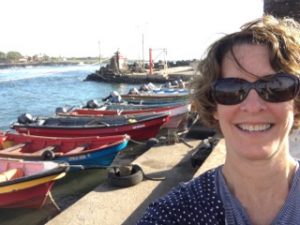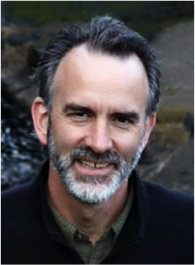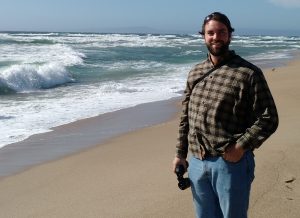Our project is a collaboration between researchers at three institutions: Duke University, Rutgers University, and Eckerd College.
Lisa Campbell, PhD (PI)

Lisa M. Campbell is the Rachel Carson Professor of Marine Affairs and Policy in the Nicholas School of the Environment, Duke University. Dr. Campbell studies oceans governance at a variety of scales (international, national, local) in relation to diverse issues (marine spatial planning, protected species, fisheries, MPAs, tourism, etc.) and is particularly interested how science and non-state actors inform governance processes and outcomes. She has participated in and led a number of multidisciplinary research projects and experiments with methodological innovations to better understand processes of environmental governance. She earned her PhD in Geography from Cambridge University (UK), her MA in Environmental Studies from the University of Toronto, and he BA&Sc from McMaster University. She lives in Beaufort, NC, where oceans and their governance can be experienced firsthand. For more, see her Duke web page.
Kevin St. Martin, PhD (PI)
 Kevin St. Martin is an Associate Professor of Geography at Rutgers University. Dr. St. Martin is a human geographer whose work is at the intersection of economic geography, political ecology, and critical applications of GIScience. His research concerns the development and institutionalization of economic and environmental discourse. It emerges from a strong background in both social theory and spatial analysis, and it has been clearly and consistently linked to issues of environmental policy. While at Rutgers, Dr. St. Martin has worked on several well-funded research projects that have in common the regulation and transformation of the marine environment. In particular, his research uses the paradigmatic case of fisheries in the U.S. Northeast to better understand the power of discourse to shape economic and environmental practices. Within this context Dr. St. Martin examines the potential for community participation in development and resource management, the relationship between local ecological knowledge and formal science, and the representation of resource dependent communities. For more information see geography.rutgers.edu.
Kevin St. Martin is an Associate Professor of Geography at Rutgers University. Dr. St. Martin is a human geographer whose work is at the intersection of economic geography, political ecology, and critical applications of GIScience. His research concerns the development and institutionalization of economic and environmental discourse. It emerges from a strong background in both social theory and spatial analysis, and it has been clearly and consistently linked to issues of environmental policy. While at Rutgers, Dr. St. Martin has worked on several well-funded research projects that have in common the regulation and transformation of the marine environment. In particular, his research uses the paradigmatic case of fisheries in the U.S. Northeast to better understand the power of discourse to shape economic and environmental practices. Within this context Dr. St. Martin examines the potential for community participation in development and resource management, the relationship between local ecological knowledge and formal science, and the representation of resource dependent communities. For more information see geography.rutgers.edu.
Noëlle Boucquey, PhD

Noëlle Boucquey is an Assistant Professor of Environmental Studies at Eckerd College. Her research interests combine elements of political ecology, geography, policy analysis, and environmental history. She examines human-environment relationships and the especially the role of coastal and marine spaces in mediating those relationships. In past projects she has analyzed conflicts between commercial and recreational fishing groups to explore how the socioeconomic, political, and material spaces of fishing are continually negotiated. Key questions she focuses on include 1) How are abstract ideas (like ‘ocean planning’) made real through social and technological means, and with what impacts on human and nonhuman actors? 2) How do resource users and policymakers employ discursive strategies to shape their relationships to the resource and to each other? 3) How is environmental policymaking performed, and how are power relationships created and transformed in the process? and 4) How do differing understandings of natural resources influence the use and governance of socio-ecological systems? Professor Boucquey has a PhD from the Nicholas School of the Environment at Duke University. For more, see her Eckerd web page.
Sarah Wise, PhD
 Sarah Wise is an Anthropologist at the National Marine Fisheries Service’s Alaska Fisheries Science Center in Seattle, Washington. Her research focuses on marine governance, decision-making, and tenure systems among coastal communities. Dr. Wise has been involved in several interdisciplinary projects looking at the human dimensions of marine resource planning in the Caribbean, Europe, and the United States. Her research concentrates on the ways expertise and knowledge are performed within the context of marine planning as a means to negotiate legitimacy and gain material and social benefits. Her current research uses a narrative lens to examine how governance concepts such as marine spatial planning evolve and gain saliency among people and institutions. In particular, this work explores the technologies used to convey certain ideas, as well as how underlying meaning is shaped through social engagement. Her research interests include social-ecological linkages, marine energy, cross boundary networks, political ecology, and linguistic anthropology.
Sarah Wise is an Anthropologist at the National Marine Fisheries Service’s Alaska Fisheries Science Center in Seattle, Washington. Her research focuses on marine governance, decision-making, and tenure systems among coastal communities. Dr. Wise has been involved in several interdisciplinary projects looking at the human dimensions of marine resource planning in the Caribbean, Europe, and the United States. Her research concentrates on the ways expertise and knowledge are performed within the context of marine planning as a means to negotiate legitimacy and gain material and social benefits. Her current research uses a narrative lens to examine how governance concepts such as marine spatial planning evolve and gain saliency among people and institutions. In particular, this work explores the technologies used to convey certain ideas, as well as how underlying meaning is shaped through social engagement. Her research interests include social-ecological linkages, marine energy, cross boundary networks, political ecology, and linguistic anthropology.
Luke Fairbanks, PhD

Luke Fairbanks is an Assistant Research Professor in the School of Ocean Science and Engineering at the University of Southern Mississippi. Luke’s work draws on human geography and policy studies, and he is broadly interested in the intersection of science, policy, and human-environment concerns. His research focuses on ocean and coastal policy issues related to aquaculture, fisheries, and ocean planning at a variety of scales, but predominantly at the regional and national level in the United States. He is particularly interested in the role of spatial data in shaping how we think about the environment and communities in ocean planning processes. His research examines marine aquaculture policy in the United States, the values that people associate with fishing and aquaculture, and ocean and coastal governance across scales. Luke has an AB from Bowdoin College and earned his PhD in Marine Science and Conservation from Duke University’s Nicholas School of the Environment. Luke is originally from central Massachusetts, and when he’s not thinking about the ocean, he’s happy to talk Boston sports. For more on Luke’s work, check out lukefairbanks.com.